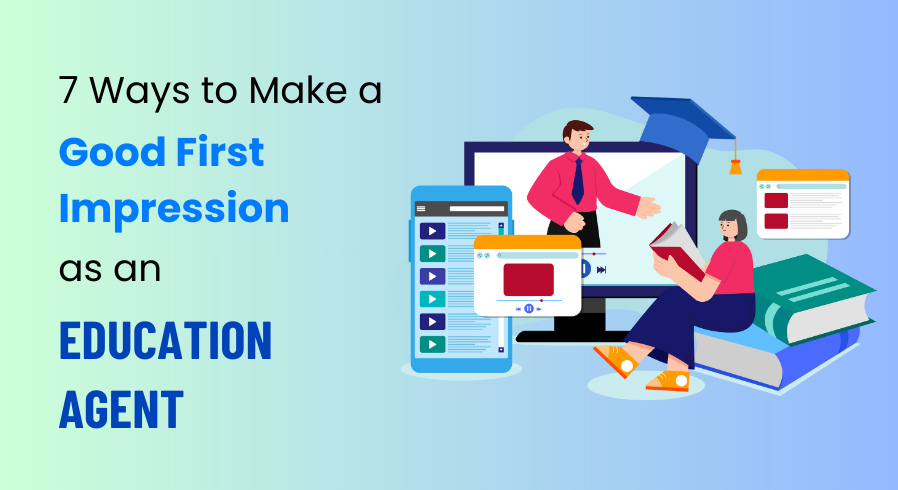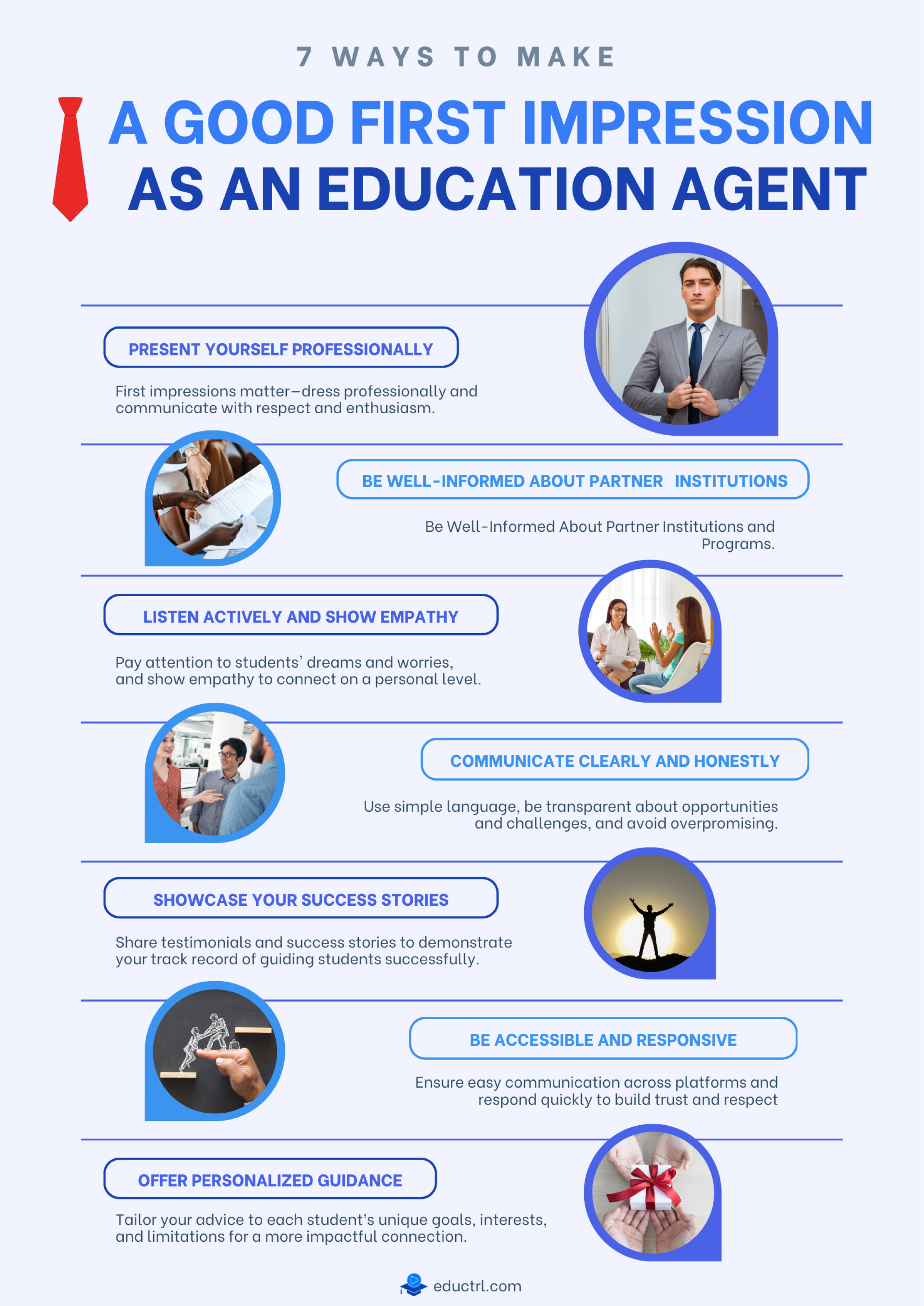Table of Contents

As an education agent, you play a key part in helping students make the most important decisions in their lives when they select the appropriate educational path. Making a compelling beginning is important for building trust with students and parents alike. Self-improvement plays an important role in both effective communication and personableness as an education agent.

1. Present Yourself Professionally

Students and parents usually pay attention to your appearance and demeanour first. An education agent must pay close attention to their professional attire. Carefully select items that are appropriate and warm, taking into account your common standing for universities and educational organizations.
Your personality impacts your professional representation in conjunction with your physical traits. Being considerate, respectful, and confident are crucial as you communicate. Express enthusiasm for helping students in their academic journeys, as this will establish connection and trust from the get-go.
2. Be Well-Informed About Your Partner Institutions and Programs

Knowledge is among your strongest tools; before connecting with a potential student or their family, confirm that you have complete knowledge of the programs, courses, institutions, and destinations you endorse. Families and students commonly ask exact questions regarding tuition charges, admission criteria, program length, scholarship opportunities, and so on.
Showing a good understanding of various programs will exhibit that you are an expert in what you do. This gives students comfort, knowing that you are ready to assist them with making a smart decision. Also, making sure you are aware of all the latest developments in the education sector, including modifications to visa laws or admissions processes, can give you a lot more credibility.
3. Listen Actively and Show Empathy

Honing the skill of active listening is a must for anyone working as an education agent. It is common for you to receive dreams, hopes, and sometimes worries about the future from your students. It is necessary to pay close attention to their objectives and citations. Pose open-ended questions to better grasp what they are trying to achieve, whether that's location, career ambitions, or financial limitations.
Showing that you care about their progress is demonstrated by attentively hearing what they have to say. Empathy is also key. Understand their anxieties and assist them in feeling heard. By incorporating this personal element, one will create a favourable impression and build trust.
4. Communicate Clearly and Honestly

For a durable impact, clear, straightforward, and genuine communication is important. Keep away from using industry jargon that could puzzle students and parents. Use simple words to clarify complex processes such as university admissions and visa applications.
Honesty is equally important. Be clear about the advantages and disadvantages of assorted educational alternatives, and don't make promises you won't keep. In a situation where a student's profile is judged as unlikely to correlate with the criteria of a particular university, it is crucial to have reasonable expectations set. Students value transparency, and this will help you establish yourself as a trustworthy advisor.
5. Showcase Your Success Stories

There is nothing more impactful than the results. One way to make a great first impression is to share testimonials, case studies, or previous success stories of students that you have worked with in the past. These successful narratives are proof of your expert knowledge and how greatly you have influenced students' lives.
If you maintain strong links with educational institutions, discuss any partnership arrangements, or describe how you’ve successfully guided students into legitimate programs. Before-and-after narratives and charts that reflect your impact on student educational achievements can assist in conveying your value.
6. Be Accessible and Responsive

In today’s fast-paced world, accessibility is key because speed is a major component of today's environment. Be sure that students, as well as parents, have easy accessibility to you for every question or consultation they have. It doesn’t make any difference how you communicate - by phone, email, through social media, or in person - your ability to respond quickly indicates your respect for their time and your commitment to supporting them.
Having a user-friendly website or an active social media account that makes it simple for students to find information is substantial. Be sure to make your contact details easy to locate, and that you are reachable during sensible hours. An effective and friendly response can significantly impact trust building and creating a delightful first interaction.
7. Offer Personalized Guidance

Though students might share identical ambitions, the path each one takes is unique. The most effective education agents give customized support relevant to a student’s ambitions, history, and choices. Continuously pay attention to their requirements and give them detailed information instead of general recommendations.
Think about a student who is very enthusiastic about engineering yet does not have financial resources; suggest the institutions that offer exceptional engineering programs which they might access. Suggest universities that integrate well with the applicants’ skills and preferred study locations.
By giving students specific directions, you provide them with the means to make improved decisions and highlight your care for their unique situations. This dedication creates lasting relationships, based on shared emotion and respect.
Conclusion
A successful education agent must possess a combination of skills and knowledge, including professional acumen, sector comprehension, sharp communication abilities, and empathic capabilities. Becoming knowledgeable, carefully considering details, and aligning with your clients' vision will help you create a reputation as a dependable and important advisor. The bonds established from those early interactions may create enduring advantages for yourself and the students you help. Creating a strong impression does not only help with the futures of students; it also fortifies your reputation as a provider of educational consultancy services.









